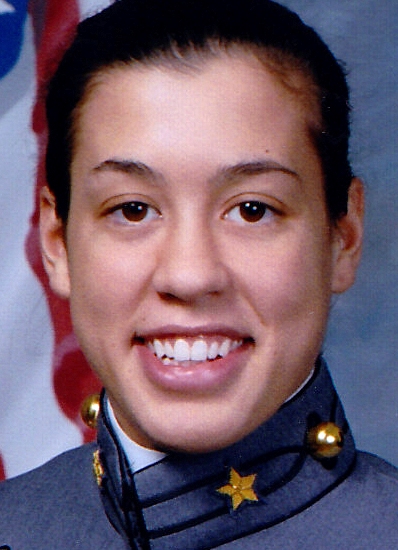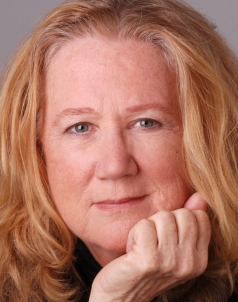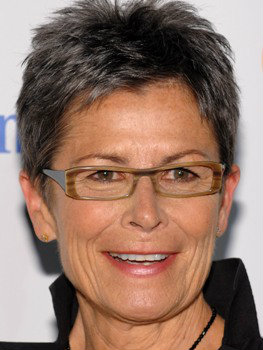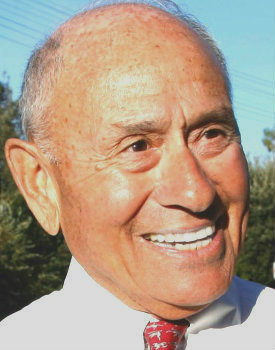Peace Corps Volunteers Know: Access to Safe Water + Handwashing = Lives Saved
Editor’s Note: According to the Pew Internet & American Life Project, 85% of Americans age 18 and older own a cell phone and nearly half (45%) of all Americans now own smartphones. That means we’re holding mobile devices in our hands—and often up to our faces and mouths—for a good portion of our day. It’s important to be mindful of how germs may be spread through the use of these devices. Reports have noted that this may be a particular concern for health care workers, whose devices may threaten good infection control practices. Let’s keep our phones and hands clean! Our colleagues at The Peace Corps wrote the following post in recognition of Global Hand Washing Day and we thought it was important to share in an effort to keep all AIDS.gov readers safe and healthy!
Today, a leading cause of childhood deaths globally is diarrheal diseases. Handwashing alone can prevent a majority of these cases. Yet millions of people worldwide continue to fall ill due to insufficient access to water and lack of information about handwashing.
To focus attention on this issue, October 15 has been established as Global Handwashing Day .
.
 The Peace Corps has been promoting handwashing and Water, Sanitation and Hygiene (WASH) for years. And WASH is linked to the Peace Corps larger work in HIV and health. When hygiene improves at health facilities, outcomes improve for patients and their families. Those living with HIV are at significantly higher risk of contracting diarrheal illnesses and are more impacted by their effects, making WASH a crucial part of maintaining healthy communities.
The Peace Corps has been promoting handwashing and Water, Sanitation and Hygiene (WASH) for years. And WASH is linked to the Peace Corps larger work in HIV and health. When hygiene improves at health facilities, outcomes improve for patients and their families. Those living with HIV are at significantly higher risk of contracting diarrheal illnesses and are more impacted by their effects, making WASH a crucial part of maintaining healthy communities.
This month, the Peace Corps released a pilot training package to highlight some of the best work the Volunteers do in WASH. The training package will equip more Volunteers to help communities create and strengthen WASH efforts in their homes, in schools, and in health facilities. Key actions promoted in the training include building tippy-taps to increase access to water , maintaining latrines, ensuring safe water supplies, and educating others about hygienic practices and behaviors.
, maintaining latrines, ensuring safe water supplies, and educating others about hygienic practices and behaviors.
To make the matter clearer, consider all you’ve touched with your hands today. Did you take public transit? Open the door to your building? By the time you start work, your hands have contacted plenty of infectious material. Without thinking about it, you wash your hands as needed.
But consider the challenge if your sole source of water is a bucket in your home, you walk a mile each morning to fill it, and that container supplies all the water your family will use each day: to drink, make tea with, cook with, clean with, and possibly to share with livestock.
Handwashing is an area where the Peace Corps is particularly well-suited to make a difference. Especially in comparison to other public-health interventions, promoting handwashing costs nothing and has an immediately measurable impact.
The Peace Corps training package contains easy-to-use tools and practical actions that have made a difference. Ever adept at inventing fun ways to teach children, Volunteers in Suriname use glitter to teach kids about the resilience of germs on hands. The time it takes to wash off all that glitter with soap and water is how long it takes to eliminate germs. Volunteers in Mali do the same exercise, but use hot pepper as “germs” on the hands. This one can be a bit more painful, but it gets the point across. In Nicaragua, Peace Corps Volunteers use “handwashing songs” to illustrate the correct amount of time needed to properly wash hands. Volunteers in Zambia have developed an improvised tippy tap system that incorporates a foot pedal using only string, a stick, and a jug.
There are endless ways to teach the practice, and Peace Corps Volunteers continue to be creative, caring, and effective. Communities respond and embrace handwashing in many different ways, and Peace Corps Volunteers adapt their approaches accordingly. The message remains the same: Washing hands saves lives.
Today, a leading cause of childhood deaths globally is diarrheal diseases. Handwashing alone can prevent a majority of these cases. Yet millions of people worldwide continue to fall ill due to insufficient access to water and lack of information about handwashing.
To focus attention on this issue, October 15 has been established as Global Handwashing Day
 The Peace Corps has been promoting handwashing and Water, Sanitation and Hygiene (WASH) for years. And WASH is linked to the Peace Corps larger work in HIV and health. When hygiene improves at health facilities, outcomes improve for patients and their families. Those living with HIV are at significantly higher risk of contracting diarrheal illnesses and are more impacted by their effects, making WASH a crucial part of maintaining healthy communities.
The Peace Corps has been promoting handwashing and Water, Sanitation and Hygiene (WASH) for years. And WASH is linked to the Peace Corps larger work in HIV and health. When hygiene improves at health facilities, outcomes improve for patients and their families. Those living with HIV are at significantly higher risk of contracting diarrheal illnesses and are more impacted by their effects, making WASH a crucial part of maintaining healthy communities.This month, the Peace Corps released a pilot training package to highlight some of the best work the Volunteers do in WASH. The training package will equip more Volunteers to help communities create and strengthen WASH efforts in their homes, in schools, and in health facilities. Key actions promoted in the training include building tippy-taps to increase access to water
To make the matter clearer, consider all you’ve touched with your hands today. Did you take public transit? Open the door to your building? By the time you start work, your hands have contacted plenty of infectious material. Without thinking about it, you wash your hands as needed.
But consider the challenge if your sole source of water is a bucket in your home, you walk a mile each morning to fill it, and that container supplies all the water your family will use each day: to drink, make tea with, cook with, clean with, and possibly to share with livestock.
Handwashing is an area where the Peace Corps is particularly well-suited to make a difference. Especially in comparison to other public-health interventions, promoting handwashing costs nothing and has an immediately measurable impact.
The Peace Corps training package contains easy-to-use tools and practical actions that have made a difference. Ever adept at inventing fun ways to teach children, Volunteers in Suriname use glitter to teach kids about the resilience of germs on hands. The time it takes to wash off all that glitter with soap and water is how long it takes to eliminate germs. Volunteers in Mali do the same exercise, but use hot pepper as “germs” on the hands. This one can be a bit more painful, but it gets the point across. In Nicaragua, Peace Corps Volunteers use “handwashing songs” to illustrate the correct amount of time needed to properly wash hands. Volunteers in Zambia have developed an improvised tippy tap system that incorporates a foot pedal using only string, a stick, and a jug.
There are endless ways to teach the practice, and Peace Corps Volunteers continue to be creative, caring, and effective. Communities respond and embrace handwashing in many different ways, and Peace Corps Volunteers adapt their approaches accordingly. The message remains the same: Washing hands saves lives.
























